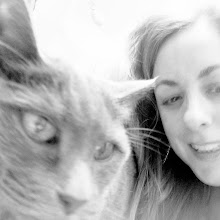 Black Lips, Good Bad Not Evil, Vice[G]arage-flavored punk rock with a Southern ac-cent, a messed-up and bluesy undertow, and the gleefully destructive impact of a 15-year-old with a bag of firecrackers.--Mark Deming on the Black Lips
Black Lips, Good Bad Not Evil, Vice[G]arage-flavored punk rock with a Southern ac-cent, a messed-up and bluesy undertow, and the gleefully destructive impact of a 15-year-old with a bag of firecrackers.--Mark Deming on the Black LipsThe fourth record from
the Black Lips was the musical
discovery of the year. I'm just not sure which one—which
year, that is. I discovered the infectious single "Veni Vidi
Vici" in 2007; I discovered
Good Bad Not Evil in 2008.
In either case, it's the most satisfying blast of garage-punk to
hit the streets since the Dirtbombs'
Dangerous Magical Noise.

Not that anyone would con-
fuse this Atlanta quartet
for the Detroit combo. A
few tracks betray a count-
ry influence. Others work
humor into the equation.
Arguably, "How Do You
Tell a Child That Some-
one Has Died" borders on
bad taste, yet I suspect it's
something this foursome has genuinely pondered—after "preparing" for such ponderings.
[Coincidentally enough, James C. Strouse's feature debut, Grace Is Gone, centers on a family man (John Cusack) agonizing over this very subject for 85 minutes. It is, incidentally, a fine film, although it goes without saying that it isn't very humorous.]Mostly,
Good Bad Not Evil is an instant mood enhancer.
There's a time for
Nick Drake and
Ian Curtis—the Lords of
Mopetown—and then there's Miller Time! Or the musical
equivalent thereof. It begins the minute you spin this disc.
Click here for the "Katrina" video.
Pretendo, ][, Country Club RecordsThis New York trio titled their second album
][ rather than
II.
The press notes explain that "two" references Atari. If I hadn't
read that, I never would've guessed. [I blame Sigur Rós for get-
ting this minimalist party started with the "parenthetical"
( ) rec-
ord.] The group's name, meanwhile, references Nintendo...a fur-
ther indication that I'm not a member of their target audience.

That said,
Pretendo'sprog-oriented alt-rock
is perfectly competent
stuff. And competency
takes skill. While I would-
n't claim they're complete-
ly generic or that these 12
tunes are over-produced—
two major turn-offs—I feel
like I've heard it before.
Nonetheless,
][ does feature a selection called "My Archi-
tect." Could that be a reference to Nathaniel Kahn's first-per-
son doc about his father, architect Louis Kahn? If so: cool.
Grizzy Bear, Friend EP, Warp RecordsWith their larger-than-life harmony chorales and meticulous transitions, Grizzly Bear's songs are already cinematic. That makes the Friend EP (Warp) something like extras on a director's-cut DVD.-- Jon Pareles in The New York Times
As with
The Fiery Fur-
naces EP,
Friend isn't
really a mini-album, mak-
ing these releases econom-
ically advantageous over
most others, since they feat-
ure 40+ minutes of music
for the price of an extended single. Of greater importance, both offer material superior to the usual castaways and cutouts.
Eleanor and Matthew Friedberger crafted their EP on their own, while
Grizzly Bear gets by with a little help from their friends. They include Atlas Sound (Deerhunter's Bradford Cox), Band of Horses, Beirut's Zach Condon, CSS, and the Dirty Projectors.
I passed on sophomore effort
Yellow House (2006), because it was too pretty. I'm all for beauty in indie rock, but I need a few sharp edges here and there—and not just lyrically.
Friend does what the best EPs should: It puts the band in a new perspective.
Certainly, there's some heavenly stuff here, like the epic "Little Brother." Then there's CSS's sprightly cover ("Knife," which is al-
so covered by Atlas Sound) and BoH's rollicking contribution ("Plans"). The compositions of Edward Droste and Daniel Rossen lend themselves surprisingly well to such divergent approaches.

But the main reason I pick-
ed up the EP is for
Grizzly Bear's version of Carole King and Gerry Goffin's "He Hit Me (and It Felt Like a Kiss)." To hear this controversial Crys-
tals number sung by a man—let alone a gay man—is a rev-
elation (and due credit to the Motels and Hole for preced-
ing them to the, um, punch).
That Rossen—I'm assuming it's Rossen—sings it so beautifully doesn't reduce the cringe factor inherent in the words, i.e. "He
hit me and I knew he loved me / 'cause if he didn't care for me /
I could have never made him mad / he hit me and I was glad."
Instead, he raises worthwhile questions about gender politics
in girl-group pop (and pop in general), about domestic abuse
(not exactly the exclusive province of heterosexuals), and ab-
out denial, i.e. I mean, when exactly
does a hit feel like a kiss?
I love the idea of a lovely little number that can inspire debate
for decades. Thanks to
Grizzly Bear for keeping the conver-
sation going—and for giving fans some real bang for their buck.
Endnote: For my money,
Black Lips is a terrible name.
Just a few weeks ago, I confused these guys with Black Dice.
And I'm sure I'll do it again. Further, after the Flaming Lips
came to fame, "lips" should've been retired. "Black" bothers
me less, though it's hardly original, i.e. Black Sabbath, Black
Keys, etc. Images from
the AMG and
the Pretendo website.

 Manohla Dargis on 4 Months,
Manohla Dargis on 4 Months,







 Funny, but I've liked Anderson since
Funny, but I've liked Anderson since












